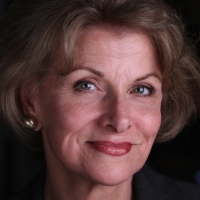|
ACTING TRAINING: COACHES AND TEACHERS
|
|
|
http://www.judykerr.com/book/SECTION_1-2.pdf
• Remember your teachers and give them thanks in your Oscar acceptance speech. • Besides my husband and children, these are the teachers I want to thank:
Bill Kerr, Greg Quandt, Bob White, Rick Davis, Samantha Harper, Joan Darling, Steven Nash; current acting coaches Caryn West, Scott Sedita, Kimberly Jentzen; life coaches Dee Wallace, Wendy Haines and literature tutor, Chuck Rossman.
The mediocre teacher tells. The good teacher explains. The superior teacher demonstrates. The great teacher inspires. -William A. Ward
• It takes many teachers in life to develop an actor. Following are teachers, tools, suggestions and recommendations that have helped me and others to develop our lives and careers. There are countless paths, and part of an actor’s job is to keep exploring new ones.
Your training will be a constant expenditure so don’t skimp in this area. Your technique and acting knowledge will make you more employable.
Acting Is Everything is an important choice, but it is not a life or death one. Choose one, take a month’s classes, give it your all and then evaluate what you have learned. If you’ve improved and others in class have grown and improved, then stick with it. • Jeffrey Marcus, an inspiring acting coach, answers, "Why train?" An athlete, musician or doctorwould never ask such a question. If acting were such an easy career, why wouldn’t everyone want to do it?
• William H. Macy, when asked in Back Stage West about what kind of teachers actors should seek out, said, "I believe that an actor is held in better stead if he doesn’t rely on his talent. What you rely on is technique. Talent is given by God and there’s no negotiating. Technique is something anybody can learn, and for a technique to be a valid technique, it’s got to be scientific. It’s got to be repeatable. It’s got to be testable. That’s what they should look for in a teacher." • Eve Brandstein, Casting Director, Producer, Career Coach, says about choosing an acting coach: I think you have to see a teacher work. You could have heard that this is the greatest teacher in the whole world and they’ve taught some of the biggest names in the business, but if there’s no chemistry, forget it. Some actors are better off in a negative situation and others in a positive one. One teacher says, ‘Why do you bring that piece of s— into class? You’re a terrible actor; who ever said you could act?’ And this inspires the actor to greatness. Another teacher says, ‘That was beautiful work, but what about this?’ And that works for that actor. You have to find out if the teacher and you are magical together.
• Joan Darling, legendary acting teacher and director: Q: Should working actors still go to class? If you find yourself starting to be disappointed after you finish a job instead of feeling that you grew and things are wonderful and you can’t wait to act again—then you should get into a class where the working on one’s art is respected and you have fun. If you don’t exercise your acting muscles at top capacity, you’ll lose them. Q: What if an actor can’t afford to study? Find a teacher that you can apprentice yourself to. Or get other actors with the same desire and meet in your living room once a week. Ask a friend who knows about acting to conduct this workshop for you. Section One: Acting Training: Coaches and Teachers • Larry Moss, respected acting coach,when asked about acting teachers in a Back Stage West interview, said: • About the expense of acting classes. I have actors who hold down two jobs in order to take class. I think that your education as an actor is something that you pay for because you care about it. It’s like therapy. I had a therapist who once said to me, "If you don’t think enough of yourself to pay for therapy, how do you think you’re going to get well?" I don’t think the classes would be as productive for the students if they weren’t making some sacrifices. I don’t think that life is about getting it easy. I don’t think being an artist is easy. I think you get to earn things in life. • Cherie Franklin, actress, acting coach and well-known dialogue coach on feature films and television: Q: What should an actor gain by working with a coach? The value of working with an acting coach on an ongoing basis is this: they can offer a safe environment that can allow you to reveal your fears and bring your work to a place where you can face your truths. This work state will invite you to trust in yourself, creating confidence and steering you clear of self-sabotage throughout your journey as an actor. Q: Who is your ideal student? One who is committed to excellence, to daily homework, to investigating his emotional levels, to understanding his blocks, and understanding what he does and doesn’t do well. Someone who wants to be the best actor they can be, who is willing to do all that it takes to get what they want. Homework might include journal work to discover emotional blocks, practicing cold reading, vocalizing, the reading of a play, seeing a TV show or a new director’s work and so on. Bottom line, an actor should remember that perfect is an end state. Therefore, as actors, we have the privilege of becoming a better craftsman with each new day, whether working on set or at home. We can continue learning and advancing as the business changes. http://www.judykerr.com/book/SECTION_1-2.pdf
|
|
|


